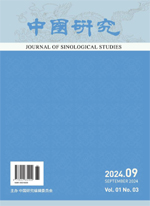Against the dual background of new liberal arts construction and the innovation-driven development strategy, application-oriented undergraduate institutions are facing an urgent need for paradigm reconstruction in their innovation and entrepreneurship education. This study, taking 5 application-oriented undergraduate institutions in Hebei Province as research subjects and adopting a mixed research method, reveals the structural contradictions existing in current innovation and entrepreneurship education within liberal arts. Based on the core characteristics of new liberal arts—“interdisciplinarity, practice orientation, and cultural inheritance”—this research constructs a “three-dimensional collaborative” construction path model, which includes modular reconstruction at the curriculum dimension, an ecological support system at the platform dimension, and a full-process monitoring system at the evaluation dimension. The study further proposes vigilance against the tendency of technological instrumentalization, adherence to the core of humanistic values, and recommendations for future attention to the iterative impact of artificial intelligence on educational paths. This research provides a theoretical framework and practical paradigm for the reform of innovation and entrepreneurship education in new liberal arts at application-oriented undergraduate institutions.



